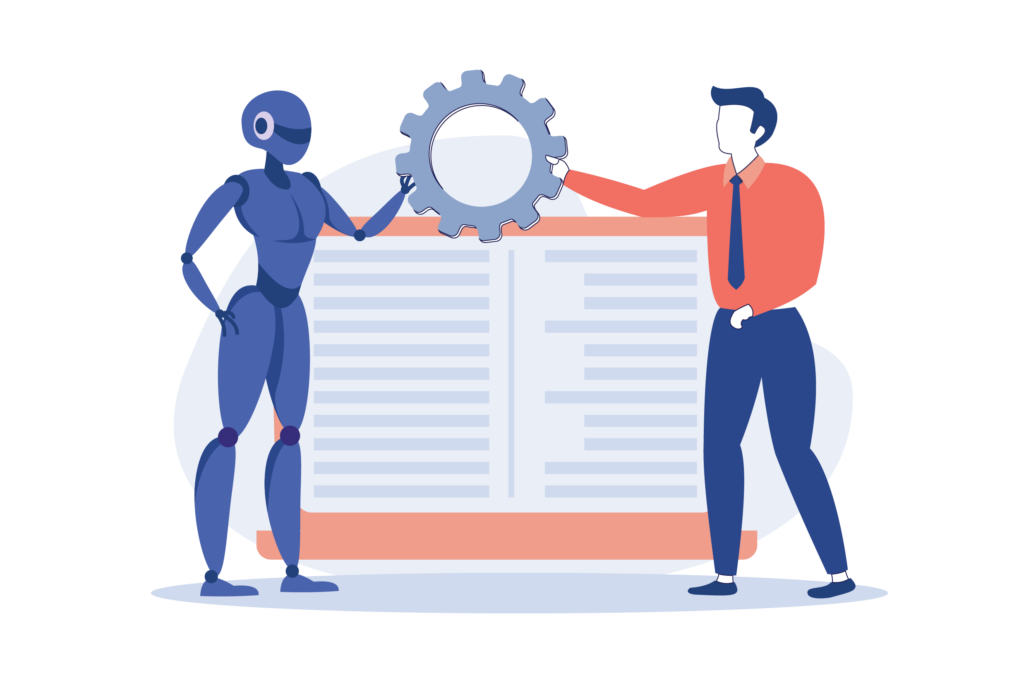Introduction
In the ever-changing world of recruitment and hiring, automation and artificial intelligence (AI) have become quite the buzzwords. These fancy technologies promise to make the hiring process a breeze, bringing efficiency, objectivity, and better decision-making to the table. But hold on a second! With great power comes great responsibility, and we can’t overlook the ethical considerations that tag along. We’ll dig into the impact of automation and AI in hiring. And don’t worry, we’ll keep it casual and talk about the ethical challenges that pop up along the way.
The Advantages of Automation and AI in Hiring
Automation and AI have wiggled their way into various stages of the hiring process, and they ain’t leaving anytime soon. And why should they? They offer some pretty nifty advantages. First off, they speed up the screening and filtering of resumes. No more waiting for human recruiters to go through mountains of paperwork. AI algorithms analyze keywords, qualifications, and experience in a jiffy, helping identify potential candidates faster than you can say “You’re hired!”
But wait, there’s more! Automation and AI bring objectivity to the selection process. Sometimes, us humans have biases—conscious or unconscious—that can mess up the diversity and inclusivity of our workforce. Well, fear not, my friend! These technologies can swoop in and save the day. They rely on data-driven algorithms, leaving no room for biases to creep in. Skills and qualifications take the front seat, making the evaluation fair and square.
And let’s not forget about fit. It’s like finding that perfect puzzle piece. Automation and AI can work their magic by analyzing personality traits, communication skills, and cultural compatibility. Companies can make informed decisions, ensuring candidates not only fit the job role but also vibe with the company culture. It’s a win-win situation, my friend!
Ethical Considerations and Challenges
Alright, let’s put on our ethical thinking caps. With great power comes great responsibility, right? So, here’s the scoop on the ethical concerns surrounding automation and AI in hiring.
One major concern is algorithmic bias. Yeah, algorithms are cool, but they’re only as good as the data they munch on. If the training data is biased or lacks diversity, we might end up with discriminatory outcomes. And that’s a no-no. We gotta keep an eye on these algorithms, auditing them regularly to spot and fix any biases that rear their ugly heads. It’s all about being fair and square!
Another thing to consider is transparency. Candidates have the right to know what’s happening behind the scenes. Nobody likes a black box that spits out results without explanation. It’s like solving a puzzle without the picture on the box. So, let’s strike a balance, shall we? Companies should spill the beans on how automation and AI are used in the hiring process, what criteria they’re using, and how personal data is handled. It’s all about being open and honest.
Oh, and privacy! We can’t forget about that. Personal data is a delicate matter. We gotta handle it with care and respect candidates’ privacy rights. Nobody wants their data floating around the interwebs, right? Companies need to make sure they’ve got robust data protection measures in place, follow privacy regulations, and be upfront about how they handle and store that precious data.
Now, here’s a tricky one- job displacement. With automation and AI taking over some hiring tasks, there’s a worry that human recruiters might be left twiddling their thumbs. We can’t let that happen! It’s important for companies to think about the impact on their workforce. Upskilling and reskilling programs can save the day, helping employees transition smoothly into new roles and embrace the wonders of automation and AI. No need to panic!
The Impact of Automation and AI on Candidates
Hey, let’s not forget about the candidates in all this automation and AI talk. These technological advancements can have a significant impact on their experiences throughout the hiring process. On the positive side, automation and AI can streamline and expedite the application and screening process, reducing the wait time for candidates to hear back from employers. It’s like getting a speedy response to that online shopping order you’ve been eagerly waiting for.
Additionally, automation and AI can provide a fairer and more objective evaluation of candidates’ qualifications and skills. This levels the playing field and gives everyone an equal chance to showcase their talents. No more worries about bias or subjective judgments clouding the decision-making process. It’s all about the facts and figures.
However, there can be drawbacks too. The increased reliance on automated systems means that candidates may have limited personal interaction or feedback throughout the hiring process. This can leave them feeling disconnected and uncertain about their standing in the selection process. It’s like waiting for a text message response that never comes.
Moreover, candidates may have concerns about their data privacy. As personal information is collected and processed by automation and AI systems, there’s a need for transparency and assurance that their data will be handled securely and responsibly. Candidates want to feel confident that their personal information won’t end up in the wrong hands or be misused. It’s all about building trust.

The Future of Automation and AI in Hiring
So, what does the future hold for automation and AI in the world of hiring? Well, the possibilities are vast and exciting. As technology advances, we can expect further innovations in how automation and AI are applied to the hiring process.
One area that holds promise is the use of natural language processing and sentiment analysis. Imagine a system that can analyze not only the content of a candidate’s resume but also their writing style and emotional tone. This could provide deeper insights into a candidate’s personality and communication skills, helping employers make even more informed decisions.
Furthermore, virtual interviews and assessments powered by AI are likely to become more commonplace. With advancements in facial and voice recognition technology, these interviews can capture and analyze subtle cues, such as facial expressions and vocal tone. This could provide employers with additional data points for evaluating candidate suitability and cultural fit.
In the near future, we may also see the integration of automation and AI technologies with virtual reality (VR) and augmented reality (AR). Imagine candidates being able to participate in simulated work scenarios or assessments using VR or AR technology. This immersive experience could give employers a more realistic understanding of a candidate’s capabilities and how they perform in specific job-related situations.
However, as we venture into this future, it’s crucial to keep ethics at the forefront. Ongoing discussions and collaborations between industry experts, policymakers, and ethicists are essential to establish guidelines and regulations that ensure the responsible and ethical use of automation and AI in hiring.
Additionally, continuous monitoring and auditing of algorithms will be crucial to identify and rectify any biases or discriminatory outcomes that may arise. Employers must be proactive in addressing these issues, taking steps to enhance diversity and inclusivity in their hiring processes and ensuring that automation and AI systems are not perpetuating or amplifying existing societal biases.
Furthermore, organizations should actively engage with candidates throughout the hiring process, providing clear communication and feedback. By maintaining a human touch and incorporating personal interaction, employers can mitigate the potential drawbacks of automation and AI and create a positive candidate experience.
Conclusion
And there you have it, my friends! Automation and AI have rocked the hiring world, bringing some fantastic advantages along for the ride. Efficiency, objectivity, and finding that perfect fit-it are all within reach. But, we can’t forget about ethics. It’s like the superhero cape that keeps everything in check.
As we move forward, let’s strike a balance between utilizing automation and AI in hiring while keeping ethics in mind. These technologies are here to assist, not replace, our human decision-making skills. It’s a team effort, with automation and AI working hand in hand with us to create a hiring process that’s efficient, fair, and inclusive.
So, let’s stay transparent, audacious, and mindful of biases. Let’s protect privacy and invest in the growth of our workforce.
Check how we shape a future where technology and ethics dance harmoniously in the world of recruitment and hiring. Cheers to that!





